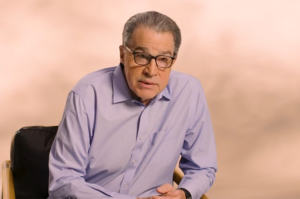Alabama churchgoers turn backs on Bloomberg at ‘Bloody Sunday’ anniversary service

Former New York City mayor and Democratic presidential candidate Michael Bloomberg got spurned by a group of black churchgoers who turned their backs on him as he delivered remarks about voter suppression and civil rights during a "Bloody Sunday" commemorative service on Sunday.
“Bloody Sunday” occurred on March 7, 1965, in Selma, Alabama, when more than 500 demonstrators, participating in a right to vote march, were met with violence by state troopers and others after they crossed the Edmund Pettus Bridge.
A reenactment of the march happens annually and Bloomberg and other presidential candidates had arrived in the state to mark the 55th anniversary of the march and court black voters ahead of Super Tuesday on March 3, when 1,357 delegates will be up for grabs in 14 states, including Alabama, where more than 60% of Democratic voters are black.
Bloomberg has been under fire in recent weeks for his controversial support of stop-and-frisk policies that targeted mainly black and Hispanic residents.
The criticism has come in the wake of the revelation of audio, reportedly from a 2015 speech in Colorado, in which Bloomberg claims that "95%" of "murders and murderers and murder victims" are male minorities between the ages of 16 to 25 and the way to reduce violence in the city is to throw minority kids "up against the walls and frisk them."
"You can just take the descriptions and Xerox it and pass it out to all the cops," Bloomberg can be heard saying on the audio.
Congregants at the Brown Chapel AME Church in Selma, Alabama turn their backs in protest while Michael Bloomberg speaks.pic.twitter.com/26RdruTre7
— Chloe Salsameda (@ChloeSalsameda) March 1, 2020
As the former Big Apple mayor delivered his remarks at the historic Brown Chapel AME Church in Selma, on Sunday, the group of approximately 10 people silently stood and turned their backs to him, multiple outlets reported.
"For too long we have gone on with just listening and letting the status quo continue," Bloomberg said, according to the Star Tribune. He highlighted his ability as mayor of New York to work with activist Al Sharpton, seated a few feet away from him.
Ryan Haygood, one of the people who turned his back during the billionaire presidential candidate’s speech at the church, told the Montgomery Advertiser that he hoped the former New York City mayor would have taken the opportunity to “right a wrong” concerning his administration’s stop-and-frisk policy but he didn’t.
“I was sitting there really wrestling with the fact that 55 years ago 600 or more people assembled at this church and they prayed and prepared to be brutalized by Alabama state troopers about a half a mile up the bridge,” Haygood said. “Then comes Michael Bloomberg who when he was the mayor of New York City presided over those very kinds of police brutality practices and policies. So in my mind, I thought, though I was surprised to see him come through the doors, I thought he would use this space to atone for that.”
When it was clear that there wouldn't be any atonement, that’s when Haygood said he decided to stand quietly and turn his back. The Montgomery Advertiser reported that seven others then stood beside him and turned their backs while a few others across the church stood and did the same for about 30 seconds.
“There’s a direct connection to the police brutality on Bloody Sunday and that brutality he presided over in NYC. So I thought he would lean into the moment, to really acknowledge it, take responsibility for it and atone for it,” Haygood argued. “And not only did he not do that, it was clear to me that he wasn’t even going to address the issue at all. And so I wrestled with it. So I felt like I had to do something to acknowledge that that’s not OK especially in this sacred space. This is a space that changed the world.”
The Rev. Leodis Strong, the church’s pastor who introduced Bloomberg to the church, told the New York Post that he encouraged the former mayor to come to the church on the 55th anniversary of “Bloody Sunday.”
“I think that it’s important for Mr. Bloomberg, Mayor Bloomberg, to hear from you, listen to you, to learn from you,” Strong told the church.
“Let me just say this. I think it’s important that he came,” he added. “And it shows a willingness on his part to change. And I like that, and I think that that is important.”



























